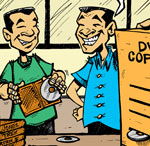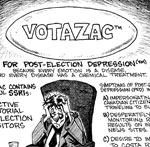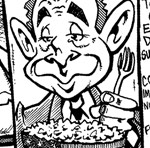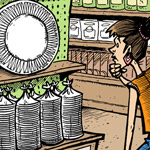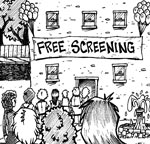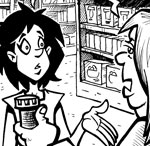Serotonin Withdrawal Syndrome - How to Avoid a Painful Breakup with an Antidepressant Drug
| Share on Facebook | Share on Twitter | Share on Google+ |
Millions of people who have depression are treated with selective serotonin reuptake inhibitors (SSRIs), drugs in the class that include Celexa, Luvox, Paxil, Prozac, and Zoloft. When symptoms of depression are improved and the drug no longer seems necessary, unfortunately, many people experience a period of even worse depression than before they began the drugs. The symptoms of SSRI withdrawal are so severe that there's even a colloquial term for them, the zaps.
The "brain zaps" that often occur when SSRI medications are withdrawn are sometimes also described as brain shocks, brain shivers, brain zingers, and head shocks. At least 20 to as many as 80 per cent of the users of SSRI medications experience these electric-like symptoms when coming off the drugs. Many people also experience sweating, nausea, dizziness, tremors, confusion, insomnia, and nightmares.
The medical profession labels these symptoms as "paraethesia," but people who have experienced them uniformly agree they have been "zapped." SSRI withdrawal syndrome can occur during withdrawal from SSRIs and SNRIs (selective norepinephrine/serotonin reuptake inhibitors) including:
- Citalopram (Celexa, Cipramil, Cipram, Dalsan, Recital, Emocal, Sepram, Seropram, Citox, Cital)
- Dapoxetin (Priligy)
- Escitalopram (Lexapro, Cipralex, Seroplex, Esertia)
- Fluoxetine (Prozac, Fontex, Seromex, Seronil, Sarafem, Ladose, Motivest, Fluctin (EUR), Fluox (NZ), Depress (UZB), Lovan (AUS))
- Fluvoxamine (Luvox, Fevarin, Faverin, Dumyrox, Favoxil, Movox)
- Paroxetine (Paxil, Seroxat, Sereupin, Aropax, Deroxat, Divarius, Rexetin, Xetanor, Paroxat, Loxamine, Deparoc)
- Sertraline (Zoloft, Lustral, Serlain, Asentra)
- Vilazodone (Viibyrd)
Some of these drugs have such a short half-life in the bloodstream that missing a single dose can cause withdrawal symptoms. Among the most frequent "brain zappers" are Effexor (venlafaxine) and Cymbalta (duloxetine).
How "brain zappers" keep zapping your brain. Occasional long-term symptoms of serotonin reuptake inhibitor withdrawal syndrome include agitation, anxiety, attention deficit, crying spells, loss of concentration, inability to sit still (akathisia), hostility, irritability, and depersonalization (a feeling of watching oneself act rather than being the actor). These symptoms often go away.
The most frequently lingering symptoms of "brain zappers," however, are usually sexual. Withdrawal from SSRIs and SNRIs can cause:
- Decreased interest in sex
- Reduced vaginal lubrication in women, erectile dysfunction or premature ejaculation in men
- Difficulty staying aroused, or staying sexually aroused all the time
- Delayed, reduced, or absent orgasm
- Genital anesthesia
- Loss of memories about sex
The loss of one's sex life after treatment for depression, of course, is also depressing!
What you can do to prevent serotonin withdrawal syndrome. The single most important thing you can do to prevent serotonin withdrawal syndrome is to take all your medication exactly as prescribed. Work with your doctor to slowly reduce your dosage so that serotonin withdrawal symptoms never occur.
If you are already experiencing loss of sexual function after discontinuing an SSRI or SNRI, consider taking gingko extract. Over 2,000 studies of gingko confirm that it increases circulation to the brain, and there are also strong indications that it can reverse sexual dysfunction after treatment for depression.
Another proven treatment for loss of sexual function after depression is high-dose, slow-release vitamin C. The German manufacturer of the vitamin C formula Cetebe found that 3,000 mg of slow-release vitamin C every day greatly increased frequency of all kinds of sexual activity in young adults recovering from treatment of depression.
Selected Reference:
Brody S. High-dose ascorbic acid increases intercourse frequency and improves mood: a randomized controlled clinical trial. Biol Psychiatry. 2002 Aug 15;52(4):371-4.
-
Skin CareMen Skin Care
-
Free ResourcesFree eBooks
-
The... patient should be made to understand that he or she must take charge of his own life. Don't take your body to the doctor as if he were a repair shop.Quentin Regestein
-
Featured Health Supplement"...I also suffer from mild-to-moderate depression, so several months ago as an experiment I ordered a few bottles of the Neuro-Natural Serenity formula, but never took it consistently. However, I started taking it faithfully last week at full dose and already my spirits are lifting and I have a greater clarity of mind."
Cathi, USA -
